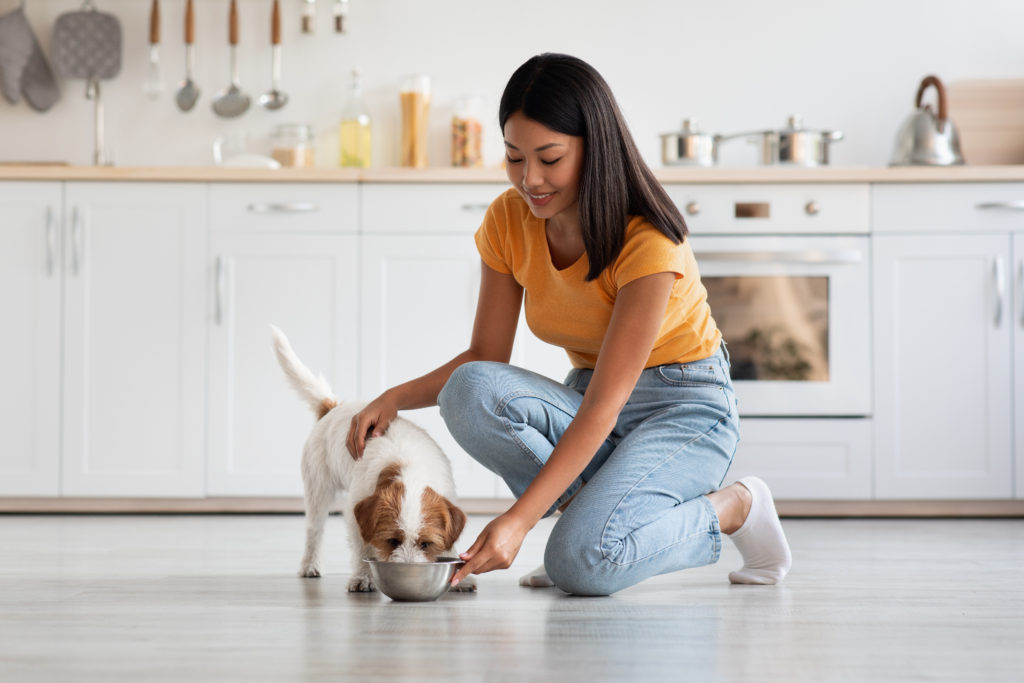January 12, 2023
It Starts at Home
People often ask how they can help Ottawa’s animals. Volunteering, adopting, donating or even working at the OHS are all great ways to help out, but there’s something else you can do that is also invaluable to protecting Ottawa’s animals. You can even do it right at home.
But what does it mean to take good care of a pet? There are a few general guidelines that are typically golden advice: spay/neuter your pets, get them microchipped, make regular visits to their veterinarian, and don’t let them roam unsupervised.
Providing a balanced diet, making sure your pet is staying physically and mentally active, and grooming your pet regularly are also great pieces of advice, but there usually isn’t a black and white answer for how to meet these needs.
Diets aren’t a one-size-fits-all. Different pets will need different amounts and types of food —some might even need a prescription diet because of a medical condition. The nutrition needs of younger and older animals are also different.
Making sure your pet gets enough exercise also wildly varies depending on the animal. One dog might want to run from sunrise to sunset, and another might be content with a light stroll or two around the neighbourhood. Cats also have exercise needs that shouldn’t be overlooked.
Because of how the needs of each pet can be so different, it’s always best to do your research before bringing a pet home to prepare you and your family for what to expect. At the OHS, our goal is to make sure adopters know the specific needs of the animal they are bringing home, and are ready to provide for them. And of course, making regular visits to a veterinarian will help you be the best pet owner possible.
When families take good care of their pets, pets live longer, happier lives. For the OHS, it means fewer animals come to us who desperately need our help. We’re here for every animal in need, but we also want to help families stay together.
Shaun Renton
Manager: Adoption & Rehoming

